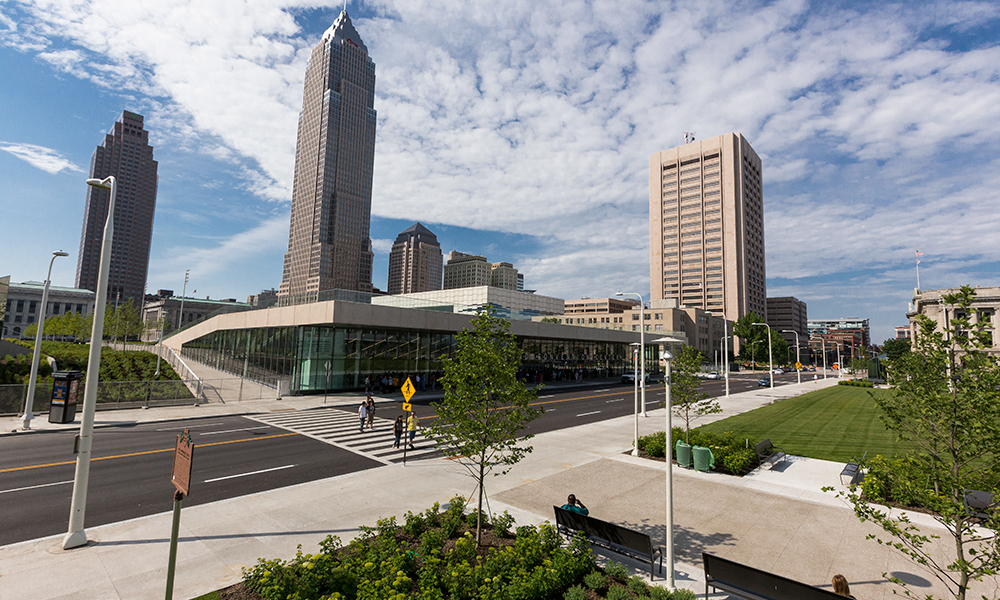
Why Investments in Cleanliness & Safety Will Pay Off Beyond the Pandemic
Cleveland’s convention center made major upgrades to its infrastructure that will stick for the long term.
Q: I’m in the position to justify my association’s meeting budget to the powers that be. How can I talk about it in ways that make clear that money spent on safety measures is well spent and that these investments will continue to pay off in the long term?
A: It’s easy to understand why budgets are under scrutiny in a time of great economic and employment upheaval. But as you note, investments in safety and cleanliness of our operations and our facilities are not only essential in the time of crisis, but they’re also going to keep paying dividends well into the post-pandemic future. Here are three talking points that help explain why and how.
- Addressing the immediate crisis also fortifies infrastructure for the future.
Very early in the pandemic, we got certified under ASM Global’s rigorous VenueShield program, which is meant to ensure the safety of staff and guests alike. We saw this moment as an opportunity to get ahead of future problems that the pandemic brought to the fore.
For instance, supply chain issues made it challenging for many to get certain cleaning products, so we came up with a system to make our own disinfectant on property. Now, we make it for ourselves as well as well as for our food-service provider. We’re also using this product in our electrical electrostatic sprayers, and we’re not vulnerable to supply chain issues now or in the future.
We see our upgrades as long-term investments not just short-term bandaids. We installed bipolar ionization within our air systems; this cleans the air of particles and includes any pathogens and through the process of ionization—the next step beyond HEPA filtration. We also installed anti-microbial handrails on our escalators. On top of that, all the handrails on escalators run through UV lights, which further ensures they are clean.
We’ve also made the facility totally touchless. Just wave your hand in front of the sensor on our bathroom doors and they open up. And of course we work with all of our clients to make sure that they have a plan because it takes all of us working together in the industry to produce safe and healthy events.
The last thing an association wants—any of us wants—is for an event to become seen as a superspreader event. None of us from a financial standpoint can afford that, nor from a standpoint of your reputation as an association or facility. So our budgets and efforts are really essential to our current and future viability.
- Stakeholders need overt reassurances of safety and cleanliness.
In order for our related industries to get fully back into the game, we all must be focused not just on safety and cleanliness but on the overt expressions of safety and cleanliness. People need to see it to believe it.
When crises happen, things do change—and sometimes permanently—but our efforts can be a way to reassure constituencies of their protection and keep their business.
For instance, since 9/11, people expect the highly visible layers of security at airports. These now-ubiquitous protocols are sustainable ways of reassuring them that their safety is heavily guarded (while actually doing it).
That will be the case for facilities, airlines, hotels, events, meetings—all of it. We will not always keep six feet of distance and wear masks. But having these systems in our arsenal will be around forever. The systems we’ve put in place are permanent.
- Focus on the long view.
My biggest takeaway? Patience.
We were shut down in the middle of March, and we really thought that we’d be back by June 1. Obviously, that timeline was way off. So we’re all learning the importance of being patient and communicating continuously with constituents to get through periods of change and uncertainty.
After the pandemic, people are still going to be looking toward convening in ways that will keep them safe and not put anybody at undue risk. Everyone involved must be on the same page with this.
Our clients want to feel safe, their exhibitors and their attendees want to feel safe. We all need to back up our safety assertions with facts. So making investments in these realms is not just money very well spent but a requirement for the long-term health of any organization in the business of convening people.
This Q&A column features Ron King of the Huntington Convention Center and is brought to you by Destination Cleveland. Keep an eye out for more meeting planning tips as you continue to navigate the new environment. And to learn more about Cleveland, visit www.thisiscleveland.com/meetings.
(Destination Cleveland)





